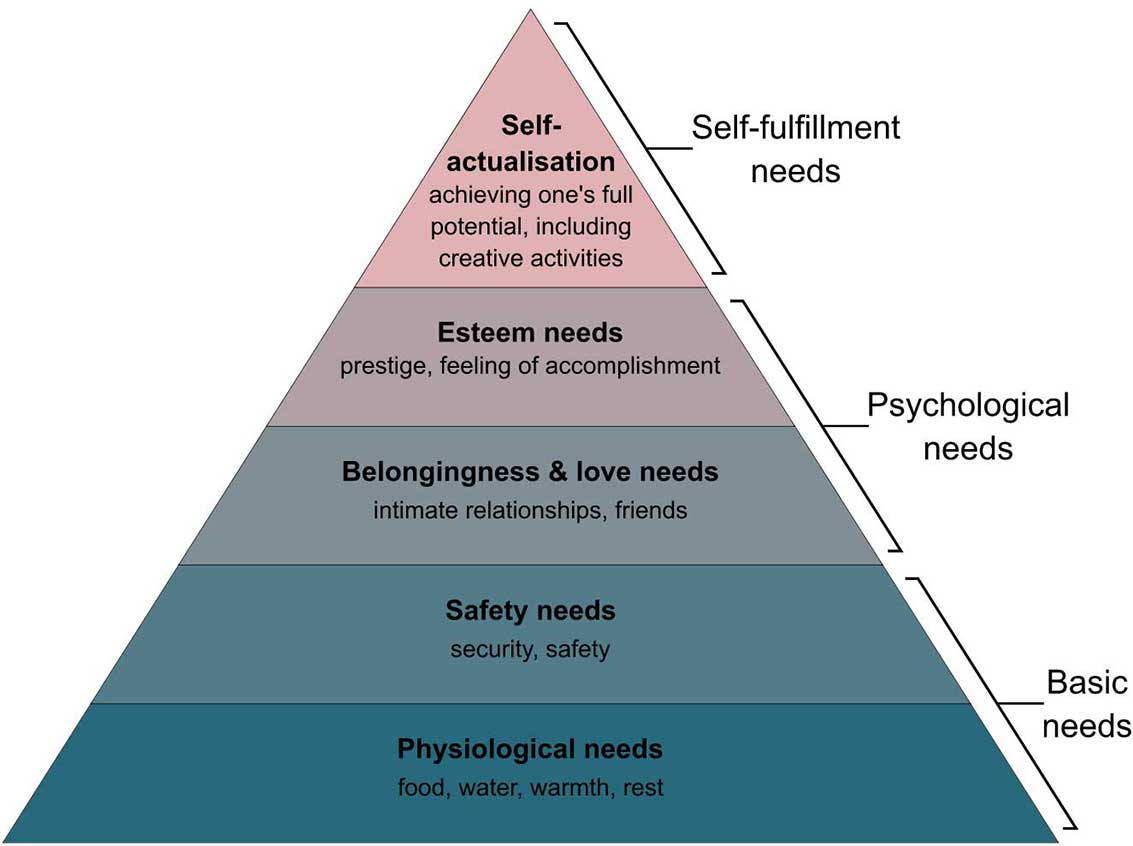Self-actualized people don't sacrifice their potentialities in the service of others;
rather, they use their full powers in the service of others (important distinction). You don't have to choose either self-actualization or
self-transcendence -- the combination of both is essential to living a full and meaningful existence.
-- Scott Barry Kaufman, Ph.D., Cognitive Scientist, Author, and Professor
Abraham Maslow brought the term “self-actualization” into the mainstream in his 1943 paper “Hierarchy of Needs: A Theory of Human Motivation.”
The hierarchy remains a very popular framework in sociology
research, management training and secondary and higher psychology instruction. The general idea is that a person must completely satisfy the needs at one
level before moving toward the pursuit of any higher level.
However, today's scholars prefer to think of these levels as continuously overlapping each other.

Because so many people are acquainted with this hierarchy, you may hear a person express his or her desire to become "self-actualized."
After all, according to Maslow's hierarchy, that is the ultimate need. Maslow describes self-actualization as:
... the desire for self-fulfillment, namely, to the tendency for [an individual] to become actualized in what he is potentially.
This tendency might be phrased as the desire to become more and more what one is, to become everything that one is capable of becoming.
It is generally accepted that having a meaningful life includes working toward your full potential.
However, neurologist, psychiatrist, and Holocaust survivor Viktor Frankl takes it one step further:
By declaring that man is responsible and must actualize the potential meaning of his life,
I wish to stress that the true meaning of life is to be discovered in the world rather than within man or his own psyche, as though it were a closed system.
I have termed this constitutive characteristic "the self-transcendence of human existence."
It denotes the fact that being human always points, and is directed, to something, or someone,
other than oneself — be it a meaning to fulfill or another human being to encounter.
The more one forgets himself — by giving himself to a cause to serve or another person to love—the more human he is and the more he actualizes himself.
What is called self-actualization is not an attainable aim at all, for the simple reason that the more one would strive for it, the more he would miss it.
In other words, self-actualization is possible only as a side-effect of self-transcendence.
Understand then, that meaning involves transcendence beyond yourself and that discovering meaning is a continuing process.
College students, for example, may not be ready to find depth of meaning in loving relationships or through their attitude toward suffering.
But by pursuing a degree, they may very well be working toward a meaningful career.
They may be learning how to navigate social relationships and in turn, finding a person to love.
One might say then, becoming self-actualized is a side effect of discovering meaning through self-transcendent pursuits.
But that doesn't mean you give your self away helping other people.
Scott Barry Kaufman, on the Scientific American website (November 7, 2018) makes this important distinction:
Self-actualized people don't sacrifice their potentialities in the service of others; rather, they use their full powers in the service of others.
Self-Transcendence and Passion for our Optimal Future - Ted Talk by Brian Westerman